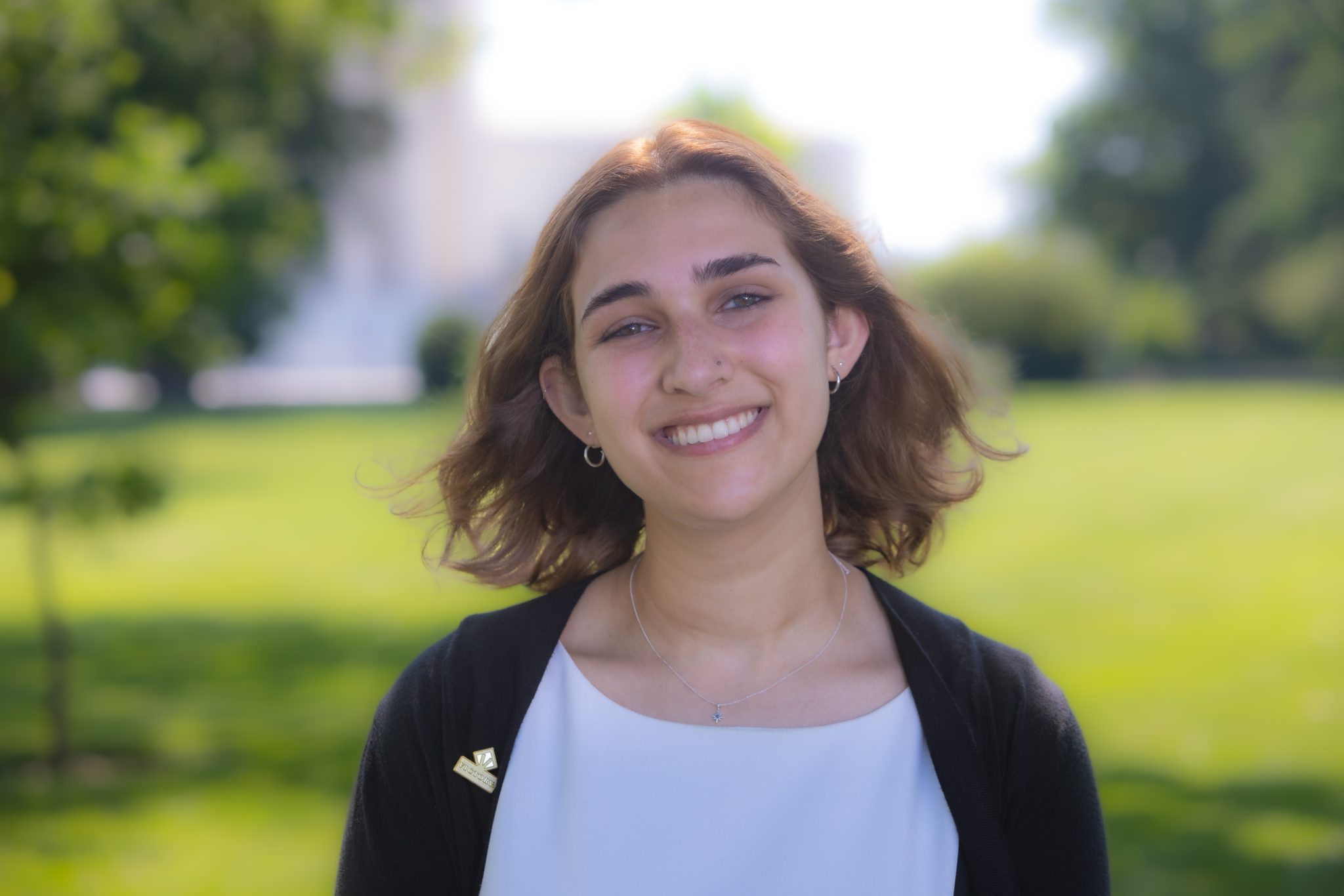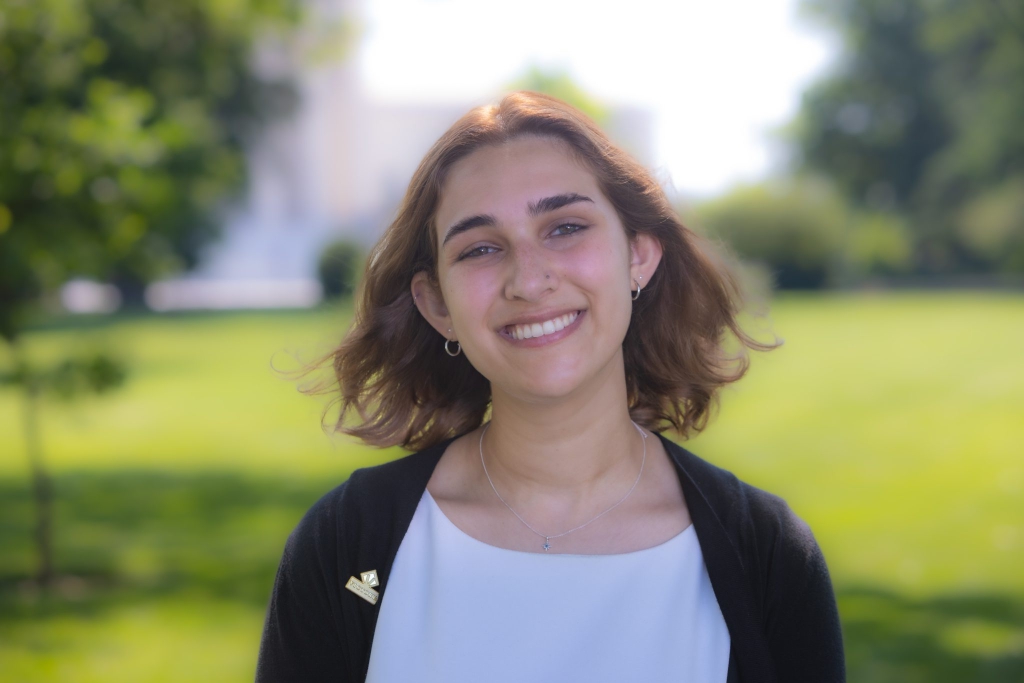
OUT ON THE HILL is the official blog of the Victory Congressional Interns. Views expressed do not necessarily reflect those of LGBTQ Victory Institute. Learn more about the internship at victoryinstitute.org/vci.
———————————–
In my first week in Washington, D.C. in anticipation of starting my Victory Congressional Internship during our orientation, I began to have doubts about my ability to be successful and whether I truly wanted to be in this position. Unfortunately, I then caught COVID-19 and went into an isolation period, where these doubts festered, and I began to worry about being outside of my intern cohort. My doubts included whether I believe the government has the ability to create impactful change that reduces harm; whether this is a path forward for me here; and whether I see more value in working within or outside of the system.
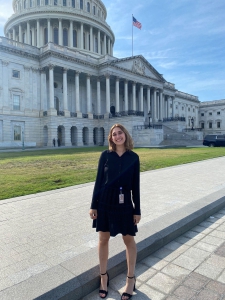 Even before this internship began, I had been partially battling in my mind whether I see a path forward for myself in government-centered work or work outside the system (such as community-based organizing). Simultaneously, I wonder if these two types of public service can coexist or if sending resources to one method of change takes power away from another. This is a concept I am still exploring, but with the Victory Congressional Internship, the intern cohort, and listening to congressional hearings or panels regarding gun violence and the criminal justice system, I am beginning to find personal clarity.
Even before this internship began, I had been partially battling in my mind whether I see a path forward for myself in government-centered work or work outside the system (such as community-based organizing). Simultaneously, I wonder if these two types of public service can coexist or if sending resources to one method of change takes power away from another. This is a concept I am still exploring, but with the Victory Congressional Internship, the intern cohort, and listening to congressional hearings or panels regarding gun violence and the criminal justice system, I am beginning to find personal clarity.
In the internship cohort group chat, I was referred to a briefing on the topic of criminal justice reform for children. While I have tried to subscribe to all types of email lists somehow this incredible event completely escaped my range of vision. Furthermore, one of my highest policy interests is in the prison industrial complex. As I headed out last-minute to find the event, I realized I had very little idea of what this event would look like – how big it was, if I would know anyone in the room, whether the focus would be on funding the legal system, and more. Yet when I entered the room and immediately found two interns from the Victory Congressional Internship, I felt reassured and in a literal sense had been saved a seat at the table. Where it often feels like I am the only queer person and biracial person in a hearing room, such as in my first week when I sat in on a Rules Committee hearing on firearm violence, the cohort helps me to regain confidence and turn uncertainty into excitement. So often in new experiences I have kept worries of my levels of competence to myself, but even on the first day of our Victory orientation we began conversations regarding imposter syndrome. These initial conversations mean that the door to voice our concerns to each other is always open, it reminds me that we are very much not alone and are supposed to be here.
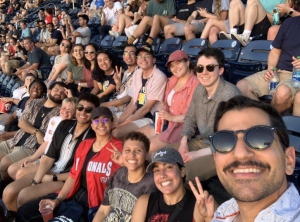 In my college experience at Vassar College in the last two years, my interest in the criminal justice system and abolition work has been swiftly sparked. However, these studies focused on efforts based solely outside the system, understanding that reform (particularly reform that increases police funding) does not lead to improvements, but rather perpetuates harm. This hearing, on the hand, was my first encounter with criminal justice reform legislation that attempts to center the voices and lived experiences of people who have experiences with the legal system and point the focus to harm reduction and restorative justice practices. This legislation includes a package of about four bills that aim to protect children, from establishing a minimum age for juvenile court jurisdiction and limiting the prosecution of children in adult courts to eliminating life and de facto life without parole sentences for children to requiring police departments to call children’s guardians. This legislation truly seemed to come from the lives of the panelists and appeared in line with how the panelists see that the harm they experienced could have been reduced or prevented.
In my college experience at Vassar College in the last two years, my interest in the criminal justice system and abolition work has been swiftly sparked. However, these studies focused on efforts based solely outside the system, understanding that reform (particularly reform that increases police funding) does not lead to improvements, but rather perpetuates harm. This hearing, on the hand, was my first encounter with criminal justice reform legislation that attempts to center the voices and lived experiences of people who have experiences with the legal system and point the focus to harm reduction and restorative justice practices. This legislation includes a package of about four bills that aim to protect children, from establishing a minimum age for juvenile court jurisdiction and limiting the prosecution of children in adult courts to eliminating life and de facto life without parole sentences for children to requiring police departments to call children’s guardians. This legislation truly seemed to come from the lives of the panelists and appeared in line with how the panelists see that the harm they experienced could have been reduced or prevented.
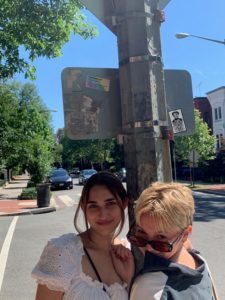 Overall, sitting in a space with cohort members from the Victory Congressional Internship and learning about legislation that is directly informed by people who had excessive sentences has helped me begin to feel more grounded in this work, to really begin to see value in some legislation, and has granted me the ability to see more paths forward. I am truly excited to see how much more I learn this summer alongside my cohort and which career paths become illuminated.
Overall, sitting in a space with cohort members from the Victory Congressional Internship and learning about legislation that is directly informed by people who had excessive sentences has helped me begin to feel more grounded in this work, to really begin to see value in some legislation, and has granted me the ability to see more paths forward. I am truly excited to see how much more I learn this summer alongside my cohort and which career paths become illuminated.
